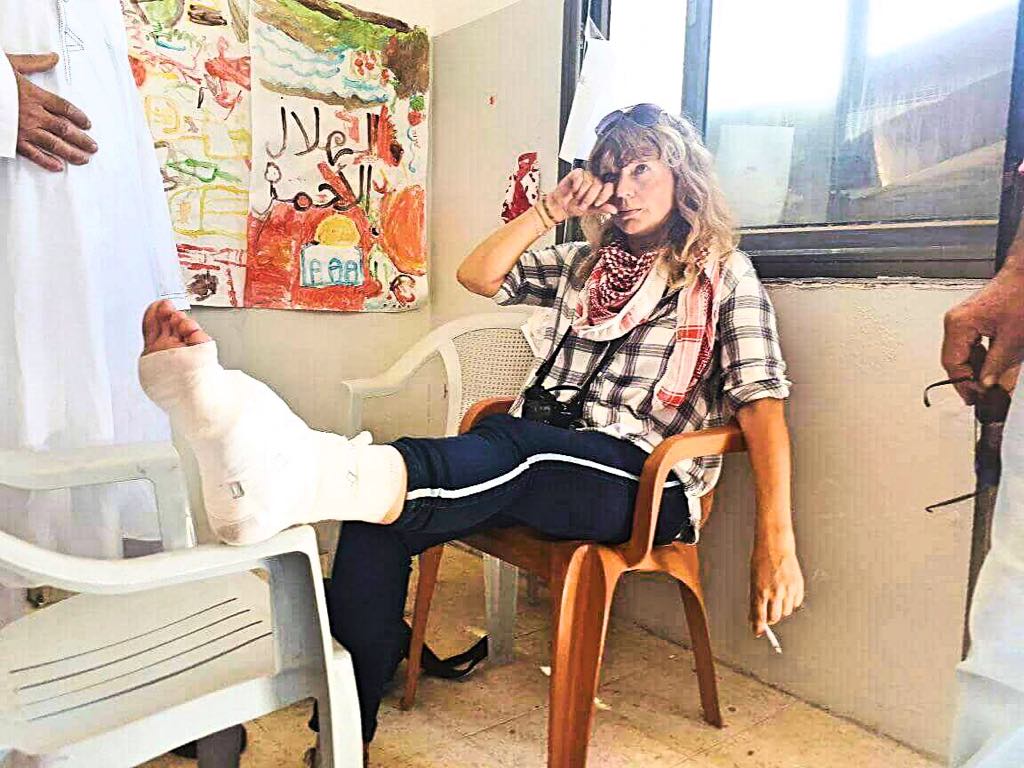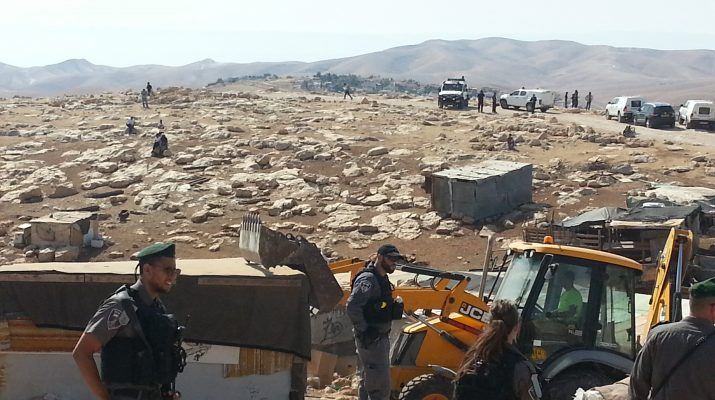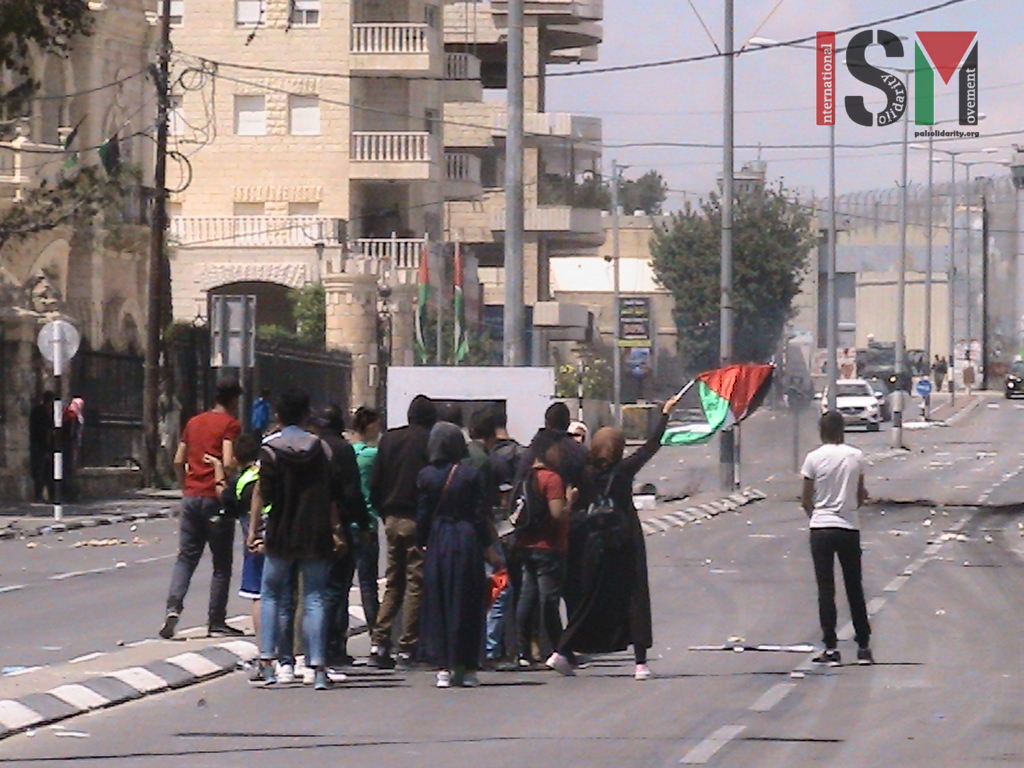Tag: BDS
-
“I think that today, I’m just going to cry”: A journal entry by an ISM volunteer
August 31st 2018 | Kristin Foss, International Solidarity Movement | Ramallah I woke up feeling sad today. I’m just so sad. I’m crying now, I started crying in the supermarket, I cried a little when a farmer refused my money for grapes. I think that today, I’m just going to cry. Maybe I need it. Yesterday, I…
-
A day of demolitions: Houses destroyed by JCB vehicles at Abu Nuwar
By Amy Hall, Lydia Noon, Eliza Egret and Tom Anderson from Corporate Occupation Not content with continuous demolition of school classrooms, the Israeli authorities have now moved on to the demolition of homes in the Palestinian Bedouin community of Abu Nuwar. Around 8.30am on Wednesday 4 May, Corporate Occupation witnessed Israeli soldiers, border police and representatives…
-
Bethlehem protests the US embassy relocation
On the 14th May 2017, the day the new US embassy to Israel was due to open in Jerusalem, protests were held across Palestine. In Bethlehem, hundreds of children, women and men marched from Nisan Square to the gate in the apartheid wall separating them from Jerusalem. This unarmed protest was immediately met by brutal…



